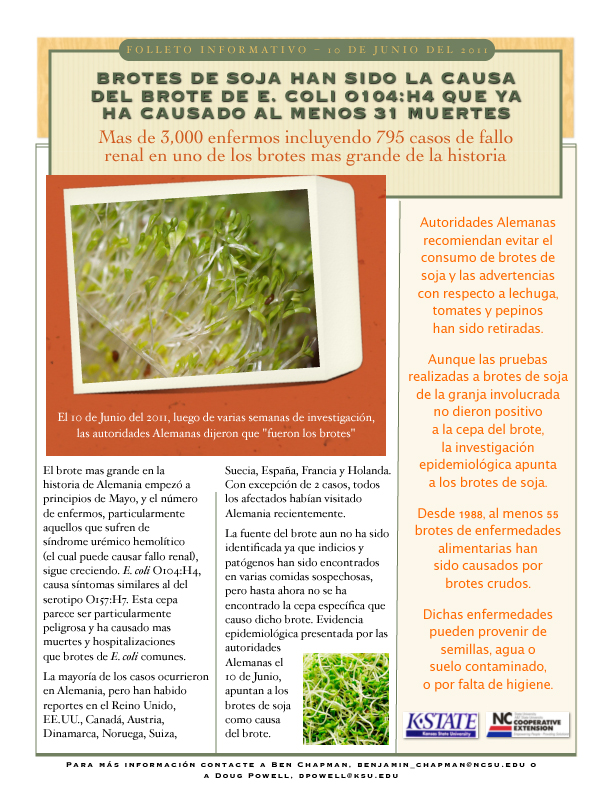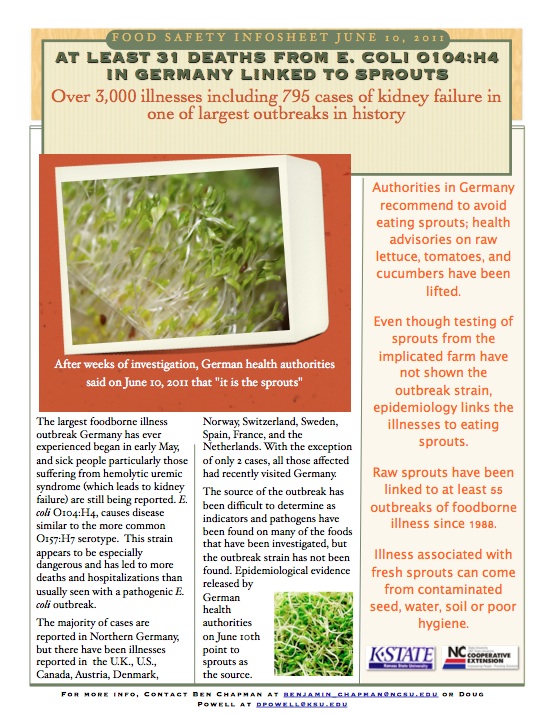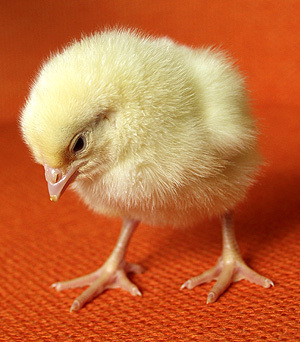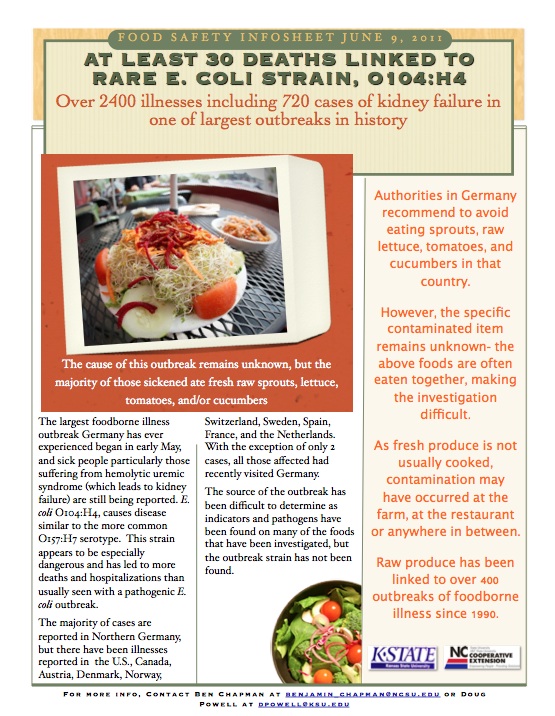At a news conference on Friday, Reinhard Burger, president of the Robert Koch Institute said an investigation into the pattern of the E. coli O104 outbreak that has killed at least 31, had produced enough evidence to draw a conclusion.
“In this way, it was possible to narrow down epidemiologically the cause of the outbreak of the illness to the consumption of sprouts,” Mr. Burger said, accompanied by the heads of Germany’s Federal Institute for Risk Assessment and Federal Office for Consumer Protection. “It is the sprouts.”
The breakthrough in the investigation came after a task force from the three institutes linked separate clusters .jpg) of patients who had fallen sick to 26 restaurants and cafeterias that had received produce from the organic farm.
of patients who had fallen sick to 26 restaurants and cafeterias that had received produce from the organic farm.
“It was like a crime thriller where you have to find the bad guy,” said Helmut Tschiersky-Schoeneburg from the consumer protection agency.
“They even studied the menus, the ingredients, looked at bills and took pictures of the different meals, which they then showed to those who had fallen ill,” said Andreas Hensel, head of the Risk Assessment agency.
Those interviews with patients and even the chefs at restaurants where they had eaten showed that people who had consumed bean sprouts were nine times more likely to become infected than those who had not.
Gert Lindemann, the state agriculture minister, said the owners of the farm had already pledged not to sell any produce after their facility came under suspicion last Sunday.
In an interview to be published in next week’s edition of Focus magazine, Mr Lindemann said 60 of the people contaminated had eaten sprouts from the small farm in Bienenbuettel.
Contamination might have been caused by infected seeds or "poor hygiene", he added.
He said three of the farm’s employees also fell ill last month, suffering from diarrhea.
The farm is located about 35 miles (56 kilometers) southeast of Hamburg. Its products include radish, red-cabbage, alfalfa, broccoli, onion and garlic sprouts, as well as sunflower seedlings, according to information on its website. Gaertnerhof has about 18 employees.
An updated table of international sprout-related outbreaks is available at:
http://bites.ksu.edu/sprouts-associated-outbreaks
 released.”
released.”
 – Desde 1988, al menos 55 brotes de enfermedades alimentarias han sido causados por brotes crudos.
– Desde 1988, al menos 55 brotes de enfermedades alimentarias han sido causados por brotes crudos. regarding food vendors present and cattle used at the rodeos. Environmental samples were collected from rodeo grounds. Two-enzyme pulsed-field gel electrophoresis (PFGE) and multiple-locus variable-number tandem repeat analysis (MLVA) were performed on isolates.
regarding food vendors present and cattle used at the rodeos. Environmental samples were collected from rodeo grounds. Two-enzyme pulsed-field gel electrophoresis (PFGE) and multiple-locus variable-number tandem repeat analysis (MLVA) were performed on isolates.
.jpg) of patients who had fallen sick to 26 restaurants and cafeterias that had received produce from the organic farm.
of patients who had fallen sick to 26 restaurants and cafeterias that had received produce from the organic farm. this year the verdict from food safety officers was that "major improvement" was needed.
this year the verdict from food safety officers was that "major improvement" was needed.  Harry Persaud was sourcing his grasshoppers. While he has a permit to import them, the vendor he’s using is not FDA-approved, and he has yet to locate a domestic, approved source.
Harry Persaud was sourcing his grasshoppers. While he has a permit to import them, the vendor he’s using is not FDA-approved, and he has yet to locate a domestic, approved source.  and ducklings to an unnamed nationwide agricultural feedstore.
and ducklings to an unnamed nationwide agricultural feedstore.
.jpeg) Saxony had come back positive, the epidemiological investigation of the pattern of the outbreak had produced enough evidence to draw the conclusion.
Saxony had come back positive, the epidemiological investigation of the pattern of the outbreak had produced enough evidence to draw the conclusion.